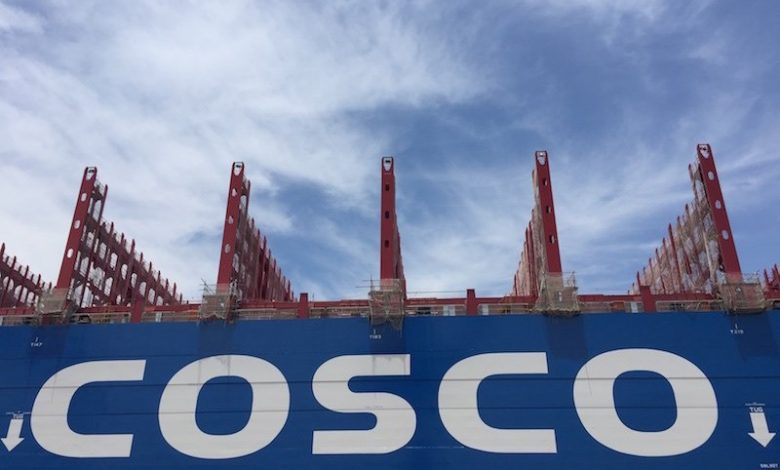Chinese company Cosco Shipping Heavy Industry has launched an electric container ship on the Yangtze River, which is the third-longest river globally. The ship, known as N997, was floated from a shipyard in Yangzhou and is expected to pave the way for future electrification efforts.

While many Western countries are pushing for electric vehicles to reduce carbon emissions, the progress in long-haul air and maritime transport is still lagging due to technological challenges.
Private players like Yara Birkeland have made some moves towards electric and autonomous ships, but they have limited range and are not yet a comprehensive solution for maritime transport.

The N997 project has been in progress for a year, and the assembly started in March 2023. The ship is 393 feet long, weighing 10,000 tons, and can carry 700 standard-sized containers, earning it the name 700 TEU.
To cover its 600-mile journey on the river, the ship is equipped with two 900 kW propulsion engines. The ship’s battery packs are swappable and stored in 20-foot containers, allowing for easy replacement and reducing emissions.
This approach is suitable for inland routes as the ship doesn’t need to spend hours charging, and the batteries can be repurposed on other ships in the future.

During trials, a smart ship system will be tested to manage resources, plan speed, and estimate arrival time based on various factors.
Cosco is not stopping with N997; they are already building its successor, N998. The company is also part of the Electric Ship Innovation Alliance, a consortium of 80 organizations working on electric propulsion.
China’s shipbuilding industry is responsible for 44 percent of global ship construction, making it capable of equipping ships with electric drivetrains and large battery packs. The country has already demonstrated this ability by deploying electric buses and trucks on its highways and is heavily involved in processing critical minerals for battery manufacturing.
China is determined to clean up its inland shipping, which accounts for 50 percent of global traffic, as it strives for net-zero emissions. The launch of the electric container ship on a 620-mile journey is a significant step in this direction.


